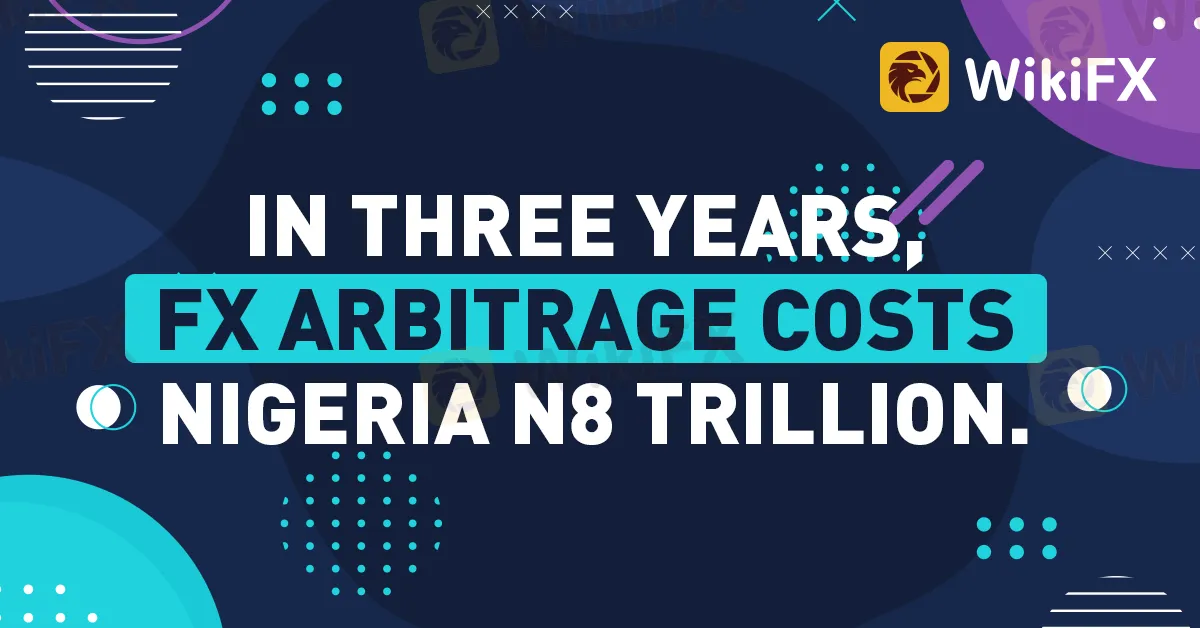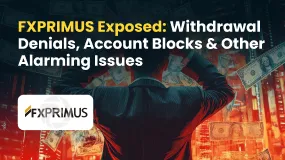简体中文
繁體中文
English
Pусский
日本語
ภาษาไทย
Tiếng Việt
Bahasa Indonesia
Español
हिन्दी
Filippiiniläinen
Français
Deutsch
Português
Türkçe
한국어
العربية
IN THREE YEARS, FX ARBITRAGE COSTS NIGERIA N8 TRILLION.
Abstract:The Central Bank of Nigeria (CBN) continued to put off the convergence of the currency rates three years after promising to do so. Nigeria's FX stability has been unstable since the 1980s due to a variety of rates, rent-seeking, and other market manipulations.

· Former CBN Director: Regulatory control, not intervention, is to blame
· Rate harmonization is still an illusion three years later
The Central Bank of Nigeria (CBN) continued to put off the convergence of the currency rates three years after promising to do so.
Nigeria's FX stability has been unstable since the 1980s due to a variety of rates, rent-seeking, and other market manipulations.
When the black-market rate skyrocketed to N880/$ last year, the market arbitrage—the differential between the official and parallel markets—rose from N100 per dollar in 2020, or approximately 30%, to over N400 per dollar (over 100%). The International Monetary Fund (IMF) are cautious about exchange rate differences over 5% and caution that doing so could lead to unhealthy manipulation that could undermine other efforts at market stabilization.
The CBN intervened in the FX market for around $42 billion between 2020 and 2022 to stabilize the naira. The amount was sold to final customers at official rates below the effective exchange rate of the naira, including students and tourists.
The CBN's Financial Stability Report states that the central bank sold $9.2 billion worth of securities on the market during the first half of 2017. Although complete data for the second half are not yet available, it is expected that the annualized value has exceeded it, especially given the volume of social and economic activity that the second half is known for.
While the black-market rate typically closed at N650/$, the Investors and Exporters (I &E) window rate averaged a suppressed N447/$. The arbitrage now stands at N203/$, bringing the CBN's FX subsidy for the year to nearly N3.65 trillion.
Similarly, the country's foreign reserves were reduced by 17.5 trillion Nigerian Naira as a result of the 2021 FX intervention. The country wasted almost N2.62 trillion that end users would have paid if they had purchased in the more accessible parallel market, at an average arbitrage of N160 per dollar.
The COVID-19 situation, that had lots of significancy in the nation's foreign earnings, forced the CBN to change the official rate three times in 2020. It was around N307/$ at the year, but three months in, it was raised to N361/$ and increased by an additional N20 as the year came to a close, bringing the average official exchange rate to N350 per dollar.
The price on the parallel market fluctuated at N450/$, translating to an arbitrage of N100 per dollar. The CBN sold $17.5 billion worth of foreign currency in total in the COVID-19 year, hence the amount realized from the sale was N1.75 trillion less than the market value. Dr. Muda Yusuf, a proponent of free markets and private sector, said that the effects of FX subsidy that was shared yesterday that a realistic exchange rate regime would add N4 trillion to the Federation Account. He criticized the CBN FX selling program on the economy and public finances.
Nigeria is dealing with an unprecedented financial squeeze. Even in the face of fictitious revenue estimates, the budget for this year is loaded with an over 50% deficit. The PMS subsidy has burdened the government, according to Yusuf, the director of the Centre for Promotion of Private Enterprise (CPPE), and FX sale is the next burden. The PMS subsidy is anticipated to be N3.36 trillion in 2023, or 15.4% of the overall spending envelope.
The gasoline subsidy regime and the Fx subsidy regime are two significant subsidy regimes that place a significant burden on the Nigerian economy. If the right reforms are put in place, enormous quantities of money can be generated from these subsidy systems.
A strategy is already in place, which is a good development. The federation account would get at least N6 trillion in annual revenue as a result of this decision. Additionally, the subsidy regime's long history of robbing the country of its resources would come to an end.

Disclaimer:
The views in this article only represent the author's personal views, and do not constitute investment advice on this platform. This platform does not guarantee the accuracy, completeness and timeliness of the information in the article, and will not be liable for any loss caused by the use of or reliance on the information in the article.
Read more

Investing in Coinexx? Think Again Before Your Account Balance Hits ZERO
Coinexx has emerged as a nightmare for traders who once saw potential and profit in its platform. The problems lie in its lack of transparency, which has left many investors with a ZERO balance. Scamming investors by employing fraudulent tactics and introducing bogus trading rules is increasingly becoming its status symbol. The endless negative reviews of this scam broker are trending on various platforms. To expose the troubling investor experiences, we’ve compiled sharp complaints from verified users of Coinexx. Read on!

UnityFXLive: How This Broker Scammed Over $350,000 ? Know the Red Flags
On August 4, 2025 Indian police arrested two men for running a fake forex trading scam under the name UnityFXLive.com. The suspects were caught operating from a rented office in Goregaon, Mumbai. During questioning, they revealed the name of a third person who is believed to be the mastermind behind the scam. He is currently on the run. The scammers promised people high returns on forex investments, but instead of doing real trading, they stole the money using fake online platforms.

FXPRIMUS Exposed: Withdrawal Denials, Account Blocks & Other Alarming Issues
Have your fund withdrawal applications been constantly denied by FXPRIMUS? Does the forex broker inappropriately block your trading account? Are your deposits disappearing without reaching your trading account? There’s something seriously wrong with this forex broker, whose track record keeps getting worse by the day. Many traders have expressed their anguish on several broker review platforms. While reading those reviews, we could not resist exposing this broker. Check out how traders have criticized FXPRIMUS for its illicit acts.

FXPRIMUS Exposed: Withdrawal Denials, Account Blocks & Other Alarming Issues
Have your fund withdrawal applications been constantly denied by FXPRIMUS? Does the forex broker inappropriately block your trading account? Are your deposits disappearing without reaching your trading account? There’s something seriously wrong with this forex broker, whose track record keeps getting worse by the day. Many traders have expressed their anguish on several broker review platforms. While reading those reviews, we could not resist exposing this broker. Check out how traders have criticized FXPRIMUS for its illicit acts.
WikiFX Broker
Latest News
Beware of Fake RS Finance: How to Spot Scams
Fortune Wave Solution: SEC Warns of Investment Scam
D. Boral Capital agrees to a fine as a settlement with FINRA
Is TD Ameritrade Safe? How to Spot Fake URLs and Stay Protected
Engineer Loses RM230,000 in “Elite Group” Investment Scam
Is Learning Forex Trading Online a Good Idea? Pros and Cons Explained
TradexMarkets: 5 Troubling Signs You Shouldn’t Ignore
A Guide to Buy Stop vs Buy Limit in Forex Trading
SEC Implements New Rules for Crypto-Asset Service Providers
Binance Users Convert Crypto and Withdraw Instantly to Mastercard
Currency Calculator


